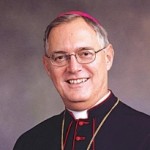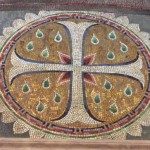
Giotto, Exorcism at Arezzo (1297-99), Upper Church, San Francesco, Assisi
No, not hot as in tropical!
Okay, bad wordplay, but Tim Muldoon’s started it, here with his look at our current interest in all things devilish:
“. . . it’s hard to avoid the fact that there’s suddenly a fascination with all things demonic. Consider this Discovery Channel series in production, cooperating with the Vatican (though the article does not specify who or what office of the Holy See). Then there are the films The Last Exorcism and, coming this month, Anthony Hopkins in The Rite– the latest in a more-or-less constant fascination with demons dating back to films like The Exorcist (1973), The Omen (1976) and others. And even the Catholic Church–at least in the United States–convened a conference in November for the sake of educating bishops (56 attended!) and priests on exorcism. Catholic News Service reports that a 2005 document of the Congregation for the Doctrine of the Faith specified that every bishop is to appoint an exorcist in his diocese.”
What is interesting to me, and a little odd-seeming, is that so many exorcists are going “public” and identifying as such. I once knew a diocesan exorcist–a very holy man–but he didn’t let too many people in on the fact that he was one. He did tell me a few hair-curling stories, though and warned me, when my kids were very young, about ouija boards which, he said were “mere things” in themselves, but things which helped dupe people into innocently inviting terrible things into their world.
Muldoon acknowledges that our understanding of “demonic possession” has changed with the advent of psychology and advances in medicine, but he also brings up scripture and the Spiritual Exercises of St. Ignatius of Loyola and he writes:
The Church’s exorcists will seek to identify when psychological or medical help is called for, and indeed there is good reason to support the idea that our knowledge of the sciences renders understandable much of what was once taken to be divine or demonic forces in the world.
But conventional wisdom errs at a fundamentally epistemological level when it dismisses demons a priori, or suggests that we have all the evidence to safely conclude that there is no such thing as possession. How can we possibly know that? The reason why people find demons uncomfortable is that they do not fit the diminished notion of transcendence that moderns and postmoderns have dangled before us. We’re just a little too uncomfortable with the idea that demons have power that only God can save us from. That would make us unable to have perfect autonomy!
You’ll want to read his whole, thoughtful post!
UPDATE: I wonder, sometimes, whether we have not listened enough to Our Lady of Fatima, when she warned of “diabolical disorientation” – what I think perhaps Pope Benedict might call part of the “dictatorship of relativism,” particularly when I see something like this demonstration of vast confusion on the part of our young Catholics. A combination of many things, I am sure, but perhaps it all begins with the dissolution of the “family” which in turn has robbed us of the sort of necessary grown up leadership which Peggy Noonan is describing here; for the past few decades, no one wanted to be the grownups, and even our priests and bishops, our parish Liturgy and Education committees, tried to escape being the unpopular, grown-up voice of the “establishment,” which wreaked havoc on our catechesis, our liturgies, our ability to communicate our church and pass on our treasure. Perhaps the desire to seem “cool” and “with it” and “up to date” has created just the sort of disoriented, relativistic hothouse in which demons may best flourish.
Hmmmm…that’s a cheerful thought.











